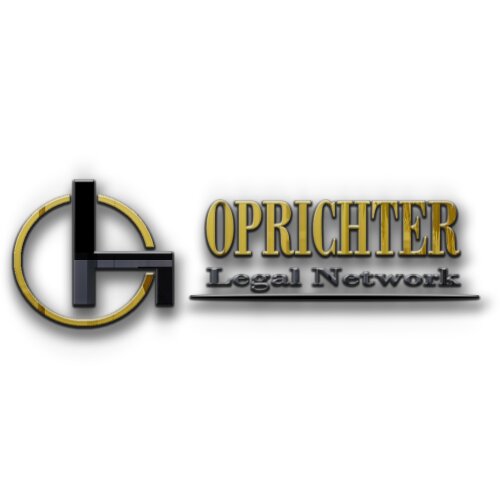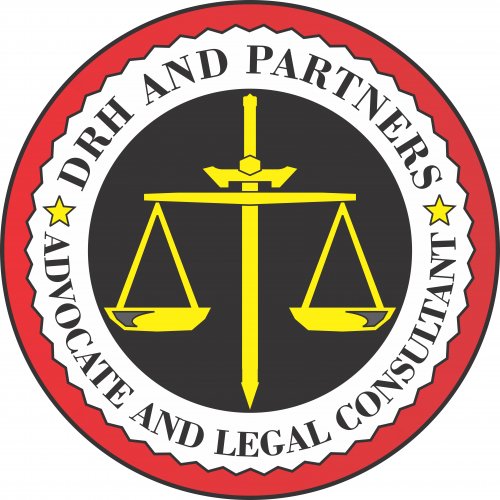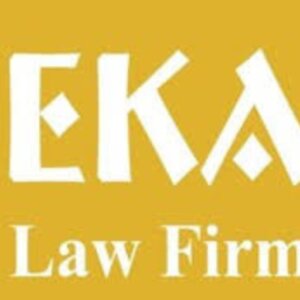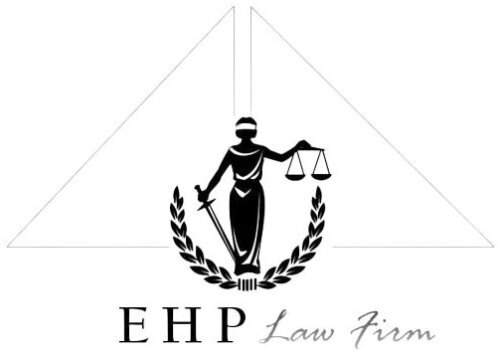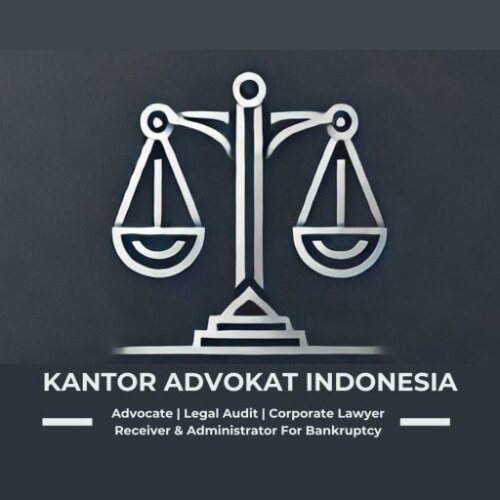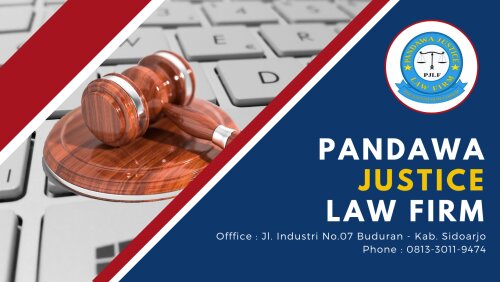Best FDA Law Lawyers in Indonesia
Share your needs with us, get contacted by law firms.
Free. Takes 2 min.
Or refine your search by selecting a city:
List of the best lawyers in Indonesia
About FDA Law in Indonesia
FDA Law in Indonesia refers to the legal framework governing the regulation, supervision, and safety of food, drugs, cosmetics, traditional medicines, and medical devices. The National Agency of Drug and Food Control (Badan Pengawas Obat dan Makanan or BPOM) is the primary regulatory authority responsible for ensuring that products entering the market meet established standards for safety, efficacy, and quality. BPOM enforces regulations under several key laws, such as Law No. 36 of 2009 on Health and Government Regulation No. 72 of 1998 on the Safety of Pharmaceutical and Food Products, along with various ministerial regulations and guidelines.
Why You May Need a Lawyer
People and businesses may need legal advice or representation in FDA Law for various reasons. Common situations include:
- Registration and licensing of food, drug, or cosmetic products with BPOM.
- Compliance with labeling, advertising, and packaging regulations.
- Handling product recalls or safety warnings issued by authorities.
- Dealing with inspections, audits, or investigations initiated by BPOM.
- Responding to administrative sanctions, such as suspension or revocation of licenses.
- Resolving disputes with consumers or government agencies related to product safety or efficacy.
- Navigating import and export requirements for regulated products.
- Understanding requirements for clinical trials or product testing.
- Defending against allegations of counterfeit or substandard products.
A lawyer experienced in FDA Law can help interpret complex regulations, ensure compliance, prepare necessary documentation, negotiate with authorities, and represent clients in administrative or civil proceedings.
Local Laws Overview
Key aspects of local laws relevant to FDA Law in Indonesia include:
- Regulatory Authority: BPOM is responsible for enforcement, providing permits, and supervising all products that fall under its jurisdiction.
- Registration Requirement: All drugs, processed foods, cosmetics, traditional medicines, and medical devices must be registered with BPOM before distribution in Indonesia.
- Labeling and Packaging: Products must meet strict labeling standards, which include information in the Indonesian language, ingredient disclosures, expiration dates, and warning labels as required.
- Advertising Regulations: There are comprehensive rules regarding the marketing, promotion, and advertising of drugs and food products to avoid misleading claims.
- Inspection and Enforcement: BPOM has the authority to conduct inspections, seize illegal products, and impose administrative or criminal sanctions for violations.
- Quality Control: Manufacturing facilities are subject to Good Manufacturing Practice (GMP), and periodic audits are conducted to maintain standards.
- Product Recall Procedures: Manufacturers and distributors are required to promptly report and recall unsafe products.
It is important for businesses and individuals to be fully aware of their obligations to avoid legal liability and to protect public health.
Frequently Asked Questions
What is BPOM, and what are its main responsibilities?
BPOM, or Badan Pengawas Obat dan Makanan, is Indonesia’s National Agency of Drug and Food Control. It regulates, supervises, and monitors food, drugs, cosmetics, traditional medicines, and medical devices to ensure public health and safety.
Do all food and drug products need to be registered with BPOM?
Yes, all food, drug, cosmetic, traditional medicine, and medical device products must be registered with BPOM before they can be distributed or sold in Indonesia.
What information is required on product labels?
Labels must include the product name, active ingredients, composition, expiration date, BPOM registration number, instructions for use, warnings, and other information in the Indonesian language.
What are common reasons for delays or rejection of a BPOM registration application?
Delays or rejection may occur due to incomplete documentation, failure to meet safety or quality standards, inaccurate labeling, or non-compliance with Indonesian regulations.
Can a foreign company register its product with BPOM?
Foreign companies can register their products via an authorized local distributor or representative with the proper legal status in Indonesia.
What are the penalties for selling non-registered or counterfeit products?
Penalties can include administrative sanctions such as fines, license suspension or revocation, product seizure, and even criminal prosecution with possible imprisonment.
What steps must be taken if a product safety issue arises?
Manufacturers or distributors must immediately report the issue to BPOM, stop distribution, conduct a recall if necessary, and cooperate with authorities to prevent harm to the public.
Are there special requirements for claims made in advertising?
Yes, all claims must be based on scientific evidence and comply with BPOM regulations. Misleading or false claims are strictly prohibited and can lead to sanctions.
What is Good Manufacturing Practice (GMP), and why is it important?
GMP refers to the standards and procedures manufacturers must follow to ensure the safety, quality, and efficacy of products. Compliance is mandatory and regularly audited by BPOM.
How can a lawyer help with FDA Law in Indonesia?
A lawyer can provide advice on compliance, assist with registration processes, handle disputes with authorities or competitors, prepare and review legal documents, and represent clients during investigations, audits, or in court.
Additional Resources
For more guidance and support regarding FDA Law in Indonesia, consider the following resources:
- National Agency of Drug and Food Control (BPOM)
- Indonesian Ministry of Health
- Directorate General of Pharmaceuticals and Medical Devices
- Indonesian Food and Beverage Association (GAPMMI)
- Local chambers of commerce or industry associations related to pharmaceuticals and food
- Accredited testing and certification laboratories
- Academic institutions with faculties of pharmacy or law specializing in food and drug regulation
Next Steps
If you need assistance with FDA Law issues in Indonesia, consider taking the following steps:
- Identify the specific area of concern, such as product registration, compliance, labeling, or dealing with enforcement actions.
- Gather all relevant documents, such as product information, application forms, correspondence with authorities, and test results.
- Consult with a qualified lawyer who specializes in FDA Law or regulatory compliance in Indonesia.
- Prepare questions for your consultation to make the most of your time and ensure clear communication.
- Follow your lawyer’s advice regarding necessary filings, corrective actions, or negotiations with BPOM or other agencies.
- Stay up to date on regulatory changes, as Indonesian FDA Law is subject to periodic revision.
Having knowledgeable legal support can help you navigate the complex regulations and avoid costly mistakes or penalties.
Lawzana helps you find the best lawyers and law firms in Indonesia through a curated and pre-screened list of qualified legal professionals. Our platform offers rankings and detailed profiles of attorneys and law firms, allowing you to compare based on practice areas, including FDA Law, experience, and client feedback.
Each profile includes a description of the firm's areas of practice, client reviews, team members and partners, year of establishment, spoken languages, office locations, contact information, social media presence, and any published articles or resources. Most firms on our platform speak English and are experienced in both local and international legal matters.
Get a quote from top-rated law firms in Indonesia — quickly, securely, and without unnecessary hassle.
Disclaimer:
The information provided on this page is for general informational purposes only and does not constitute legal advice. While we strive to ensure the accuracy and relevance of the content, legal information may change over time, and interpretations of the law can vary. You should always consult with a qualified legal professional for advice specific to your situation.
We disclaim all liability for actions taken or not taken based on the content of this page. If you believe any information is incorrect or outdated, please contact us, and we will review and update it where appropriate.
Browse fda law law firms by city in Indonesia
Refine your search by selecting a city.




